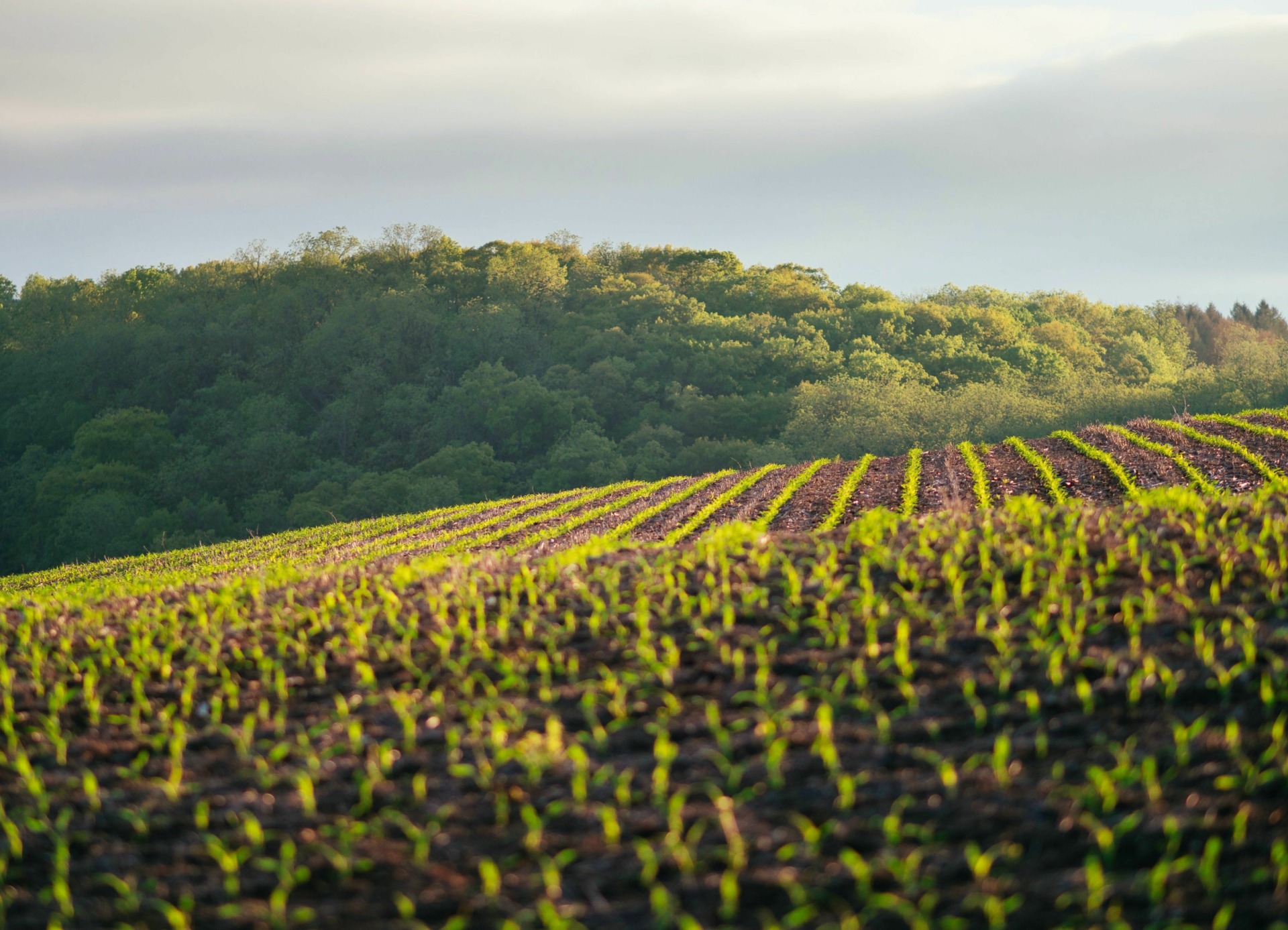Senate Majority Leader Mitch McConnell (R-KY) initiated the latest push to legalize hemp in April. That’s when he introduced Senate Bill 2667, known as The Hemp Farming Act of 2018. It was rolled into the Farm Bill, which passed on June 28.
Supporters say that making hemp legal will help bolster economies in agricultural states and pave the way for more research on the plant. It will also enable consumers to purchase hemp products without fear of governmental reprisal.
The bill, which needs to be merged with another House bill before it goes to the Oval Office for President Trump’s signature, would legalize hemp. It would remove its status as a controlled substance, enabling farmers to grow hemp and sell it as a commodity. States would have the ability to regulate hemp production, and hemp farmers would be eligible for crop insurance.
“It’s time to figure it out and see where this market will take us,” Sen. McConnell said to the Senate Agricultural Committee in June.
“I think it’s an important new development in American agriculture. There’s plenty of hemp around; it’s just coming from other countries. Why in the world would we want a lot of it to not come from here?” he continued.
FOLLOW US ON FACEBOOK & INSTAGRAM
What Is Hemp & How Is it Related to Cannabis?
You may already see a variety of hemp products in supermarkets and other retail stores, including:
- Edible hemp seeds
- Clothing
- Personal care products
- Cooking oil
- Building materials
They’re manufactured from a species of cannabis known as Cannabis sativa L. (Cannabaceae), a relative of the cannabis plant that’s used to create the psychoactive products sold at your local dispensary. This “industrial hemp” is related to Cannabis sativa, but has one significant difference: It contains only a tiny fraction of tetrahydrocannabinol (THC)—usually less than 0.3% and so isn’t psychoactive.
For many people, it would be very difficult to visually distinguish between what we’ll call hemp vs. cannabis. The italicized word Cannabis is the actual biological name for both plants, and throughout the world, there are dozens more related species.
Cannabis cultivators wishing to emphasize the psychoactive effects of cannabis have focused on the production of plants rich in resinous cannabinoids like THC and cannabidiol (CBD). On the other hand, hemp farmers have bred their plants to produce tough fibers and plump, oil-filled seeds.
Hemp’s Long Strange Trip as an Agricultural Crop
Sen. McConnell wasn’t incorrect in advocating for the legalization of hemp. Its history as a diverse and useful crop is nearly as old as human history itself.
Over thousands of years, hemp was cultivated from cannabis plants to encourage the growth of tall, fibrous stalks and the oily seeds. They were used to create rope, paper, oil and animal feed. It’s thought that hemp seeds travelled with early Asian civilizations, with records of Chinese cultivation dating back 8,500 years.
In the U.S., McConnell’s home state of Kentucky was the country’s leading hemp producer from the mid-1800s until about 1912. It was used as a source for rope and sail cloth. At that time, hemp was called “the king of fiber-bearing plants, the standard by which all other fibers are measured.” But by 1938, with the rollout of marijuana prohibition, the production of hemp in the U.S. disappeared.
Canada Takes the Lead in Hemp Production
Last year, the U.S. imported $67 million in hemp—mostly seeds used to make other products—and Canada supplied 90% of it. Canada, which strictly regulates hemp farming, has allowed commercial licenses for hemp production since 1998.
Canada had 140,000 acres in hemp cultivation in 2017 and has greatly simplified its regulations for farmers who want to grow hemp. It’s been legal to import hemp into the U.S. since 1998, which is one reason Canadian hemp products made such dramatic inroads into the U.S. market.
Hemp Can Thank CBD for Its Possible Legalization
There’s a compelling reason why Sen. McConnell powered his hemp proposal through Congress: the growing popularity of cannabidiol (CBD)-infused products. Although the Senator doesn’t publicly champion CBD, it should be noted that Kentucky, the state Sen. McConnell represents, grows industrial, low-THC hemp through university and agriculture pilot programs.
The positive shift in public perception regarding cannabis, combined with glowing reports of CBD’s effectiveness in treating certain types of seizure disorders, has resulted in staunch opponents of cannabis taking a more lenient approach to hemp-based CBD products. The hemp oil derivatives you may start to see in traditional retail outlets, if hemp is legalized, will be made from industrial hemp, and not cannabis.
I’m Confused—Are High-CBD Cannabis Strains Considered Hemp?
No. Charlotte’s Web, the strain made famous by Colorado’s Stanley Brothers, was named for the young girl who was featured in Sanjay Gupta’s groundbreaking 2013 CNN documentary, “Weed.” When Charlotte’s parents discovered that a low-THC, high-CBD cannabis strain massively curtailed her seizures, marijuana cultivators worked to develop more high-CBD strains. These strains include:
- ACDC
- Harlequin
- Cannatonic
- Sour Tsunami
- Ringo’s Gift
But all of these strains originate from THC-containing cannabis plants.
Because CBD is found in both industrial hemp and psychoactive forms of cannabis, manufacturers have created hemp-based CBD oils, which is why this issue can be confusing to the consumer.
Are All Hemp CBD Oils the Same?
No. Legalization advocates hope that hemp will fall into a regulatory process like psychoactive cannabis. Currently, there are far fewer regulations regarding the manufacturing and formulation of industrial hemp-based products. They’re regulated by the Food and Drug Administration as a dietary supplement.
But the market is already flooded with everything from excellent CBD products to the equivalent of snake oil—hemp products made with less than healthy additives from questionable sources.
RELATED: HEMP OIL VS. CBD OIL: WHAT’S THE DIFFERENCE?
It takes a much larger amount of low-resin hemp plants to create an equivalent amount of CBD oil as its high-resin, cannabis sister. Some importers sell less-than-optimal hemp paste and powder to manufacturers, and many of the end results of these questionable products can be found online.
This sub-optimal hemp usually requires the addition of thinning agents if used in an item like a vape pen. Beware of any cannabis product that uses propylene glycol as a thinning agent. It’s often used in conjunction with unregulated “pure CBD oil” and is harmful to healthy cannabis consumers, and particularly unhealthy for medical marijuana patients.
Will Hemp CBD Work the Same for Me as Cannabis-Based CBD Products Will?
Like all products used by patients for self-care and wellness, it’s important to consider the source of your medicine. Look carefully at the labels and note whether your hemp-based CBD product has been tested in the same way as your psychoactive cannabis has. A quality hemp product will be tested for pesticides, molds and cannabinoid profiles.
The best way to know if hemp-based CBD medicine works for you is to experiment. Some people have excellent results from hemp-based CBD medicine, and others respond better to CBD medicine from cannabis plants.
And remember: Hemp is the source for an ever-growing list of excellent products like soaps, lotions and food items that are just plain good for the body and soul.
Sen. McConnell has done the right thing. With 17 states currently operating with CBD-only laws that only permit the use of high-CBD products, the next battle will be fought by hemp farmers. They understand the benefits of whole-plant cannabis derivatives that will make safer and more effective medicine for those who truly need it. Plus, an expanded agricultural sector makes economic sense, too.
Photo credit: John Westrock
If you’re new to cannabis and want to learn more, take a look at our Cannabis 101 post. HelloMD can help you get your medical marijuana recommendation; it’s easy, private and 100% online.






